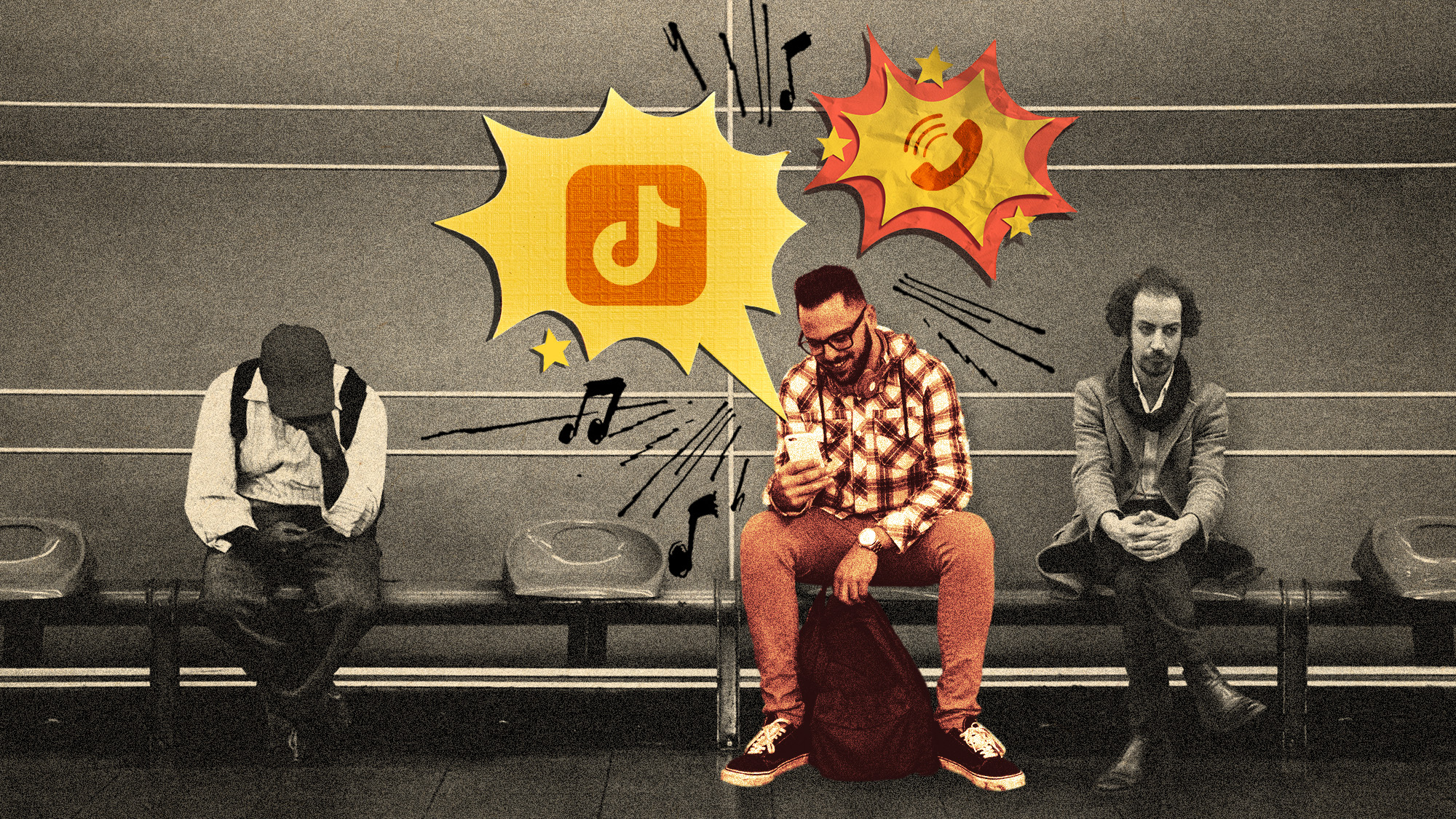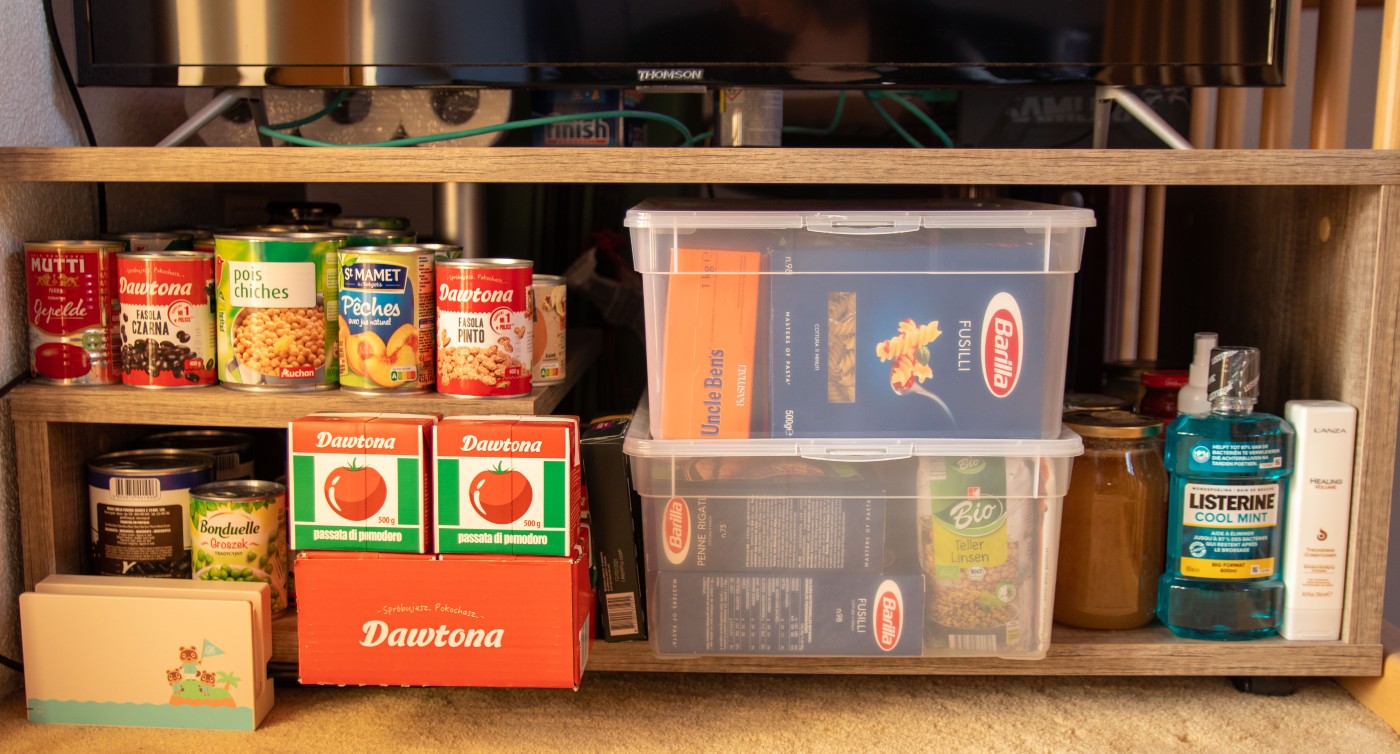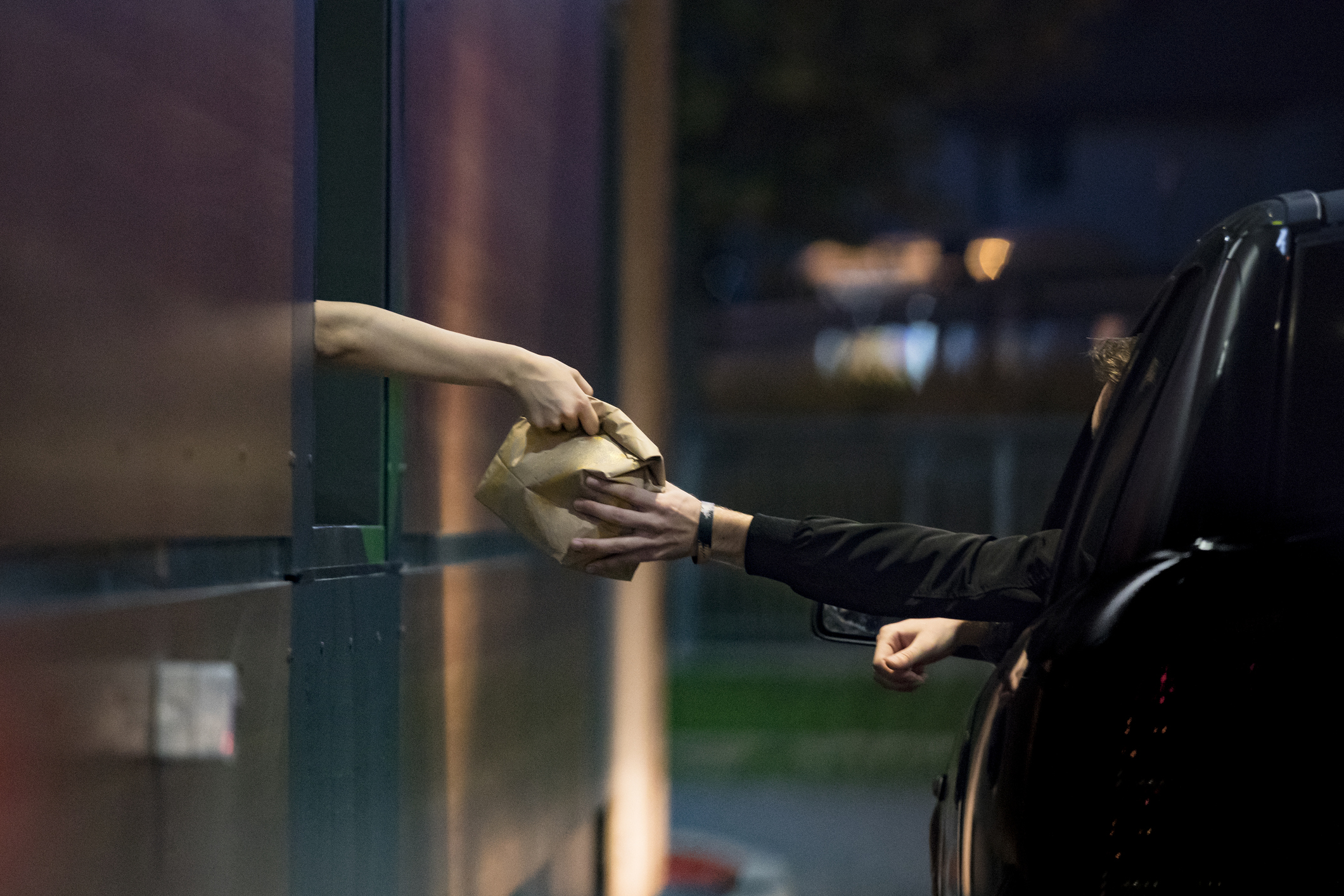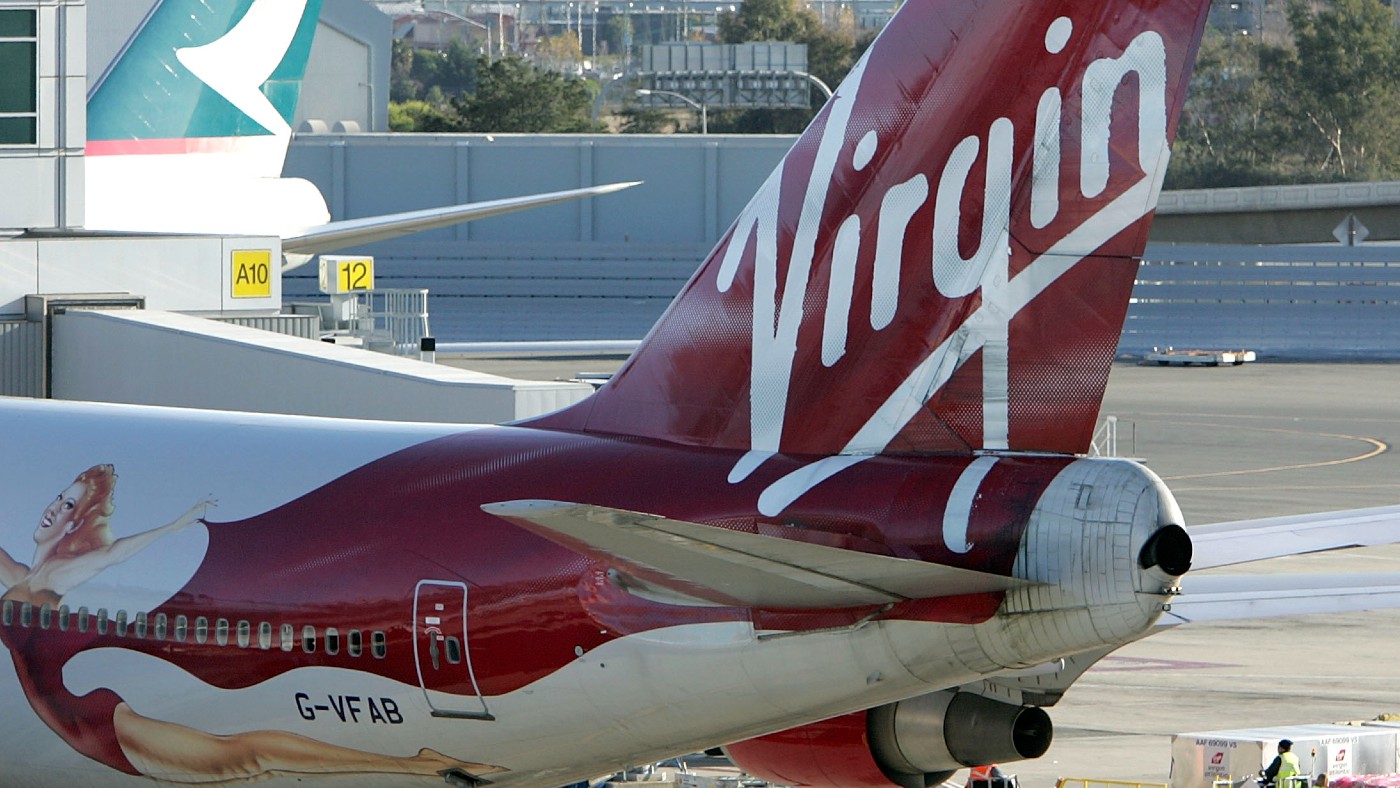Coronavirus is going to change the movie industry forever
The on-demand revolution just got accelerated


A free daily email with the biggest news stories of the day – and the best features from TheWeek.com
You are now subscribed
Your newsletter sign-up was successful
We are beyond the point of things ever realistically going "back to normal" after the coronavirus outbreak. Many facets of life will be irrevocably changed, even if the situation doesn't reach the worst-case scenarios that experts are predicting. Flaws in America's sick leave policies and hospitals' preparedness have been exposed. "Office culture" for the sake of office culture has been rendered unnecessary. We will likely never live through a period again where people don't wonder about when the next pandemic could hit.
The film industry is another part of life being dramatically reshaped in response to the unfolding global health crisis. At first it seemed temporary, with simple changes being made to the release calendar as the pandemic scared more and more moviegoers away from theaters — the new James Bond film, the live-action Mulan, and Marvel's Black Widow have been pushed back months, the ninth Fast and Furious delayed a full year. Now, though, faced with bans on movie theaters that could stretch for months, major studios are exploring forms of distribution other than the traditional theatrical pipeline.
On Friday, NBCUniversal will release Invisible Man, Emma, and The Hunt, all of which have been playing in theaters for less than five weeks (The Hunt only hit theaters on March 13), for on-demand streaming. That marks a dramatic shortening of the films' theatrical windows, when movies play exclusively in movie theaters; typically it takes major releases 90 days or more to make it to DVD, blu-ray, and video on demand (VOD) services. Even more dramatically, Universal and DreamWorks' Trolls World Tour will be moved up from its April 20 release date to April 10, and will be available to stream at home the same day.
The Week
Escape your echo chamber. Get the facts behind the news, plus analysis from multiple perspectives.

Sign up for The Week's Free Newsletters
From our morning news briefing to a weekly Good News Newsletter, get the best of The Week delivered directly to your inbox.
From our morning news briefing to a weekly Good News Newsletter, get the best of The Week delivered directly to your inbox.
It's hard to blame a studio for adopting such a solution, especially when there is no other way for movies to be seen in the major markets. The Los Angeles Times reported disastrous drops in box office numbers as the outbreak has accelerated, with last Sunday capping the weakest box office weekend in over 20 years, down 45 percent from the weekend prior. Universal's early-release movies will be available for $19.99 for a 48-hour rental, indicating the decision isn't being done as coronavirus-induced charity for movie-lovers stuck in quarantine. You want to watch a movie sooner than everyone else, then you still pay the ticket price, just to the studio rather than the theater.
The thing is, now that studios are making this shift in distribution strategies, there will likely be little incentive for them to simply revert to the old way of doing business when life returns to a more familiar routine. It'll be one of many ways in which our world is forever changed by coronavirus.
While straight-to-home-viewing is not itself anything new — Netflix, for example, releases many of their major films direct to its own streaming platform — the problem is that studios like NBCUniversal won't have a whole lot of reasons to go back to the usual theatrical release timeline after this is over, especially if straight-to-VOD proves to be a fruitful endeavor. Even with the steep price tags attached to rentals, it seems fairly safe to say that it will be. Being in quarantine is boring! And $20 is actually fairly cheap all things considered; previously-considered straight-to-VOD plans floated premium pricing of $30 to $50. What's more, the rental isn't $20 a person, it's $20 a television; split it with roommates or friends, and it quickly becomes cheaper than a movie ticket.
But while NBCUniversal is powering ahead to make up lost revenue, theaters are suffering. In many places across the country, they've even been ordered closed. Such theaters are going to lose out on the money they might have made off of Invisible Man or Emma when they're allowed to reopen — or, for that matter, on Trolls World Tour, which many theaters will probably never have a chance to show. If the coronavirus outbreak lasts for the eight-or-more weeks that experts are predicting, and Universal's competitors decide to cash in on the same straight-to-home-viewing model rather than push off more release dates, then theaters are also watching the money for movies like Antebellum (April 24), The Woman in the Window (May 15), and the new Tom Hanks movie Greyhound (June 12) leave the table. If the pandemic stretches into August — a possibility floated by the administration — then studios will be looking for solutions for major blockbusters like Wonder Woman 1984, Top Gun: Maverick, and Pixar's Soul next.
A free daily email with the biggest news stories of the day – and the best features from TheWeek.com
And what happens to theaters then? Already they're feeling the squeeze; in Seattle, one of several of the country's hardest-hit areas, SIFF theaters have furloughed their staff. In New York City, listings newsletter Screen Slate and film venue Light Industry have set up a "fund that can be accessed by cinema workers whose hours have been curtailed because of this crisis and who are not being otherwise compensated." Now, studios could be about to deliver the death blow.
The major theater chains like Regal and AMC can in all likelihood survive a few weeks without revenue, but smaller independent and arthouse theaters cannot. It goes without saying that such institutions are part of the lifeblood of a community, and losing them in the numbers we're poised to would be an irreversible wound to American culture.
Going out to the movies will never totally die; a huge screen and great sound system still beat whatever you have at home, and diehard cinephiles will always seek out the textures of real film when given the opportunity. But when the dust settles, the question is not just who will be left. It's for how long. Because if studios keep truncating their theatrical windows, it might not take a government-mandated quarantine to convince you to spend the night in.
**
While America is practicing social distancing, I'm adding daily culture recommendations for how to pass those extra hours at home. My pick for today:
The horror and thriller streaming service Shudder is offering 30 free days with the code "SHUTIN," and with it you can watch The Wailing, a stylish South Korean film about demonic possession, which follows a police sergeant investigating a wave of murders stemming from the arrival of a stranger in town. It's much scarier than Parasite, but another great, propulsive genre flick from the movie powerhouse of South Korea.
Jeva Lange was the executive editor at TheWeek.com. She formerly served as The Week's deputy editor and culture critic. She is also a contributor to Screen Slate, and her writing has appeared in The New York Daily News, The Awl, Vice, and Gothamist, among other publications. Jeva lives in New York City. Follow her on Twitter.
-
 Local elections 2026: where are they and who is expected to win?
Local elections 2026: where are they and who is expected to win?The Explainer Labour is braced for heavy losses and U-turn on postponing some council elections hasn’t helped the party’s prospects
-
 6 of the world’s most accessible destinations
6 of the world’s most accessible destinationsThe Week Recommends Experience all of Berlin, Singapore and Sydney
-
 How the FCC’s ‘equal time’ rule works
How the FCC’s ‘equal time’ rule worksIn the Spotlight The law is at the heart of the Colbert-CBS conflict
-
 Book reviews: ‘We the People: A History of the U.S. Constitution’ and ‘Will There Ever Be Another You’
Book reviews: ‘We the People: A History of the U.S. Constitution’ and ‘Will There Ever Be Another You’Feature The many attempts to amend the U.S. Constitution and Patricia Lockwood’s struggle with long Covid
-
 Why Irish traditional music is having a moment
Why Irish traditional music is having a momentIn The Spotlight Frustrations with isolation and technology credited for reviving 'auld' trad tunes
-
 A not-so-quiet place: Why is no one using headphones in public anymore?
A not-so-quiet place: Why is no one using headphones in public anymore?Under the Radar People are increasingly comfortable with both speakerphone and watching videos (very) out loud
-
 Gas masks and loo rolls: why 'preppers' are on the rise
Gas masks and loo rolls: why 'preppers' are on the riseUnder The Radar Doomsday community has expanded from 'Rambo wannabes' to 'Tesco regulars'
-
 Breathtaking: the Covid drama that may make you scream
Breathtaking: the Covid drama that may make you screamThe Week Recommends ITV three-parter is a 'tour de force' that exposes 'political complacency'
-
 The lasting changes of the post-pandemic dining era
The lasting changes of the post-pandemic dining eraThe Explainer The newest of new normals
-
 How revenge travel is impacting the aviation and tourism industries
How revenge travel is impacting the aviation and tourism industriesTalking Point The surge in travel is a far cry from the previous pandemic years during which travel took a hit
-
 Virgin Atlantic fined for violating Iraqi airspace
Virgin Atlantic fined for violating Iraqi airspaceSpeed Read Airline said the incursions were accidental and caused by the Covid-19 pandemic
